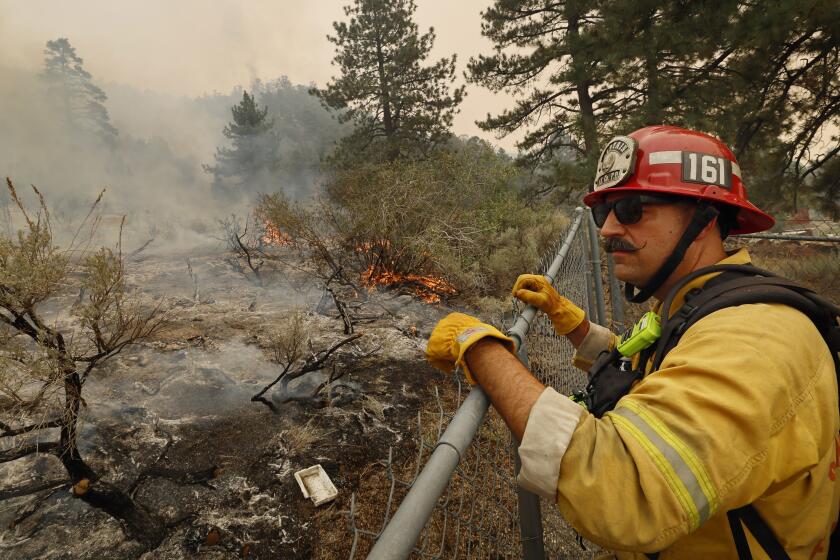Mystery surrounds Villaraigosa’s duties at free-ticket events
At the heart of the current controversy involving free tickets at Los Angeles City Hall, one question stands out: If Mayor Antonio Villaraigosa attended big-time entertainment events because he was conducting city business, why did he not keep better records of those public duties?
For weeks, Villaraigosa has argued that he appeared in an official capacity at dozens of concerts, sporting events and awards shows since 2005, from sitting in box seats at Dodger Stadium to attending a 2007 performance by R&B singer Mary J. Blige at L.A. Live. Those duties, he said, exempted him from the law that would require him to report those tickets as gifts.
Yet the mayor’s in-house lawyer has spent the last month searching for records to explain just what ceremonial duties the mayor performed at those events, which are now under scrutiny from two investigative agencies. Earlier this week, he said he said he may not be able to determine the identity of every ticket donor..
Add in the fact that the mayor’s previous legal team had blacked out or omitted 27 of 73 cultural and athletic events placed on Villaraigosa’s appointment calendar when they released copies to The Times over the last two years. To justify some of the redactions, they cited a provision of the law that allows private engagements to be removed from public documents. Among those blacked-out entries were events to which the mayor received free tickets.
Villaraigosa’s current in-house lawyer, Brian Currey, has repeatedly defended the mayor’s handling of the tickets, saying that they do not qualify as gifts because of the exemption covering official and ceremonial duties. And as long as those tickets cannot be defined as gifts, “there’s no legal requirement that [the mayor] keep any sort of log with respect to his attendance at events,” he said.
Still, one state regulator warned that elected officials who fail to track their free tickets — and the official duties that accompany them — do so at their own peril.
“While our regulation doesn’t explicitly require elected officials to maintain documentation related to their activities at an event, they ultimately bear the burden of substantiating to our enforcement division that this was for a ceremonial role,” said Roman Porter, executive director of the Fair Political Practices Commission, which enforces state ethics laws.
The city Ethics Commission is conducting an investigation into Villaraigosa’s free tickets, while Los Angeles County Dist. Atty. Steve Cooley has opened a preliminary inquiry into the matter.
The mayor’s advisors have been relying, in part, on a legal opinion issued by the Ethics Commission in 2004, which stated that attending an awards show or NBA All-Star game is part of a mayor’s role as L.A.’s “business ambassador and chief marketer.”
Currey also said he has no record to show whether Villaraigosa took a guest free of charge as well. Unless he needed his police detail, the mayor should not accept more than one free ticket to his events, said Bob Stern, president of the Center for Governmental Studies, a nonprofit group that tracks public finance and disclosure laws.
“It’s one thing to say that he should participate in an official function,” said Stern, who co-wrote the state’s Political Reform Act. “But there’s no reason for a second person to go along unless it’s for security purposes.”
In one letter explaining why certain events were removed from calendars provided to The Times, former Villaraigosa Deputy Counsel Gabriel Sandoval said that showing some entries would have amounted to “an unwarranted invasion of personal privacy.” Sandoval also said that in some cases, the public interest was served by “not disclosing the record and protecting the mayor’s security.”
Many of those events — including 15 concerts, six Lakers and three Dodgers games — were not disclosed until Currey released his own list of 81 events, taken from the mayor’s original calendars. Since then, Villaraigosa aides said they are reviewing their handling of such records.
“The use of a private event on his schedules seems to have been inconsistently applied,” Currey said. “So whoever was preparing the schedule may not have understood the purpose for which he was attending” a game or concert.
Why the mayor’s legal staff removed the events is unclear.
When Villaraigosa saw Mexican pop star Luis Miguel perform in April 2006, the event appeared in the calendar released by his office. But when a second concert by the same performer took place in September 2008, the event was blacked out by Villaraigosa’s staff before the calendar was released to The Times.
In another instance, the mayor’s calendar showed that he planned to attend a performance by Mexican ranchera singer Vicente Fernandez in November 2008. But two concerts in 2008 and 2009 by Fernandez’s son, the Spanish-language balladeer Alejandro Fernandez, were redacted from his schedule.
Times staff writer Phil Willon contributed to this report.
More to Read
Sign up for Essential California
The most important California stories and recommendations in your inbox every morning.
You may occasionally receive promotional content from the Los Angeles Times.











